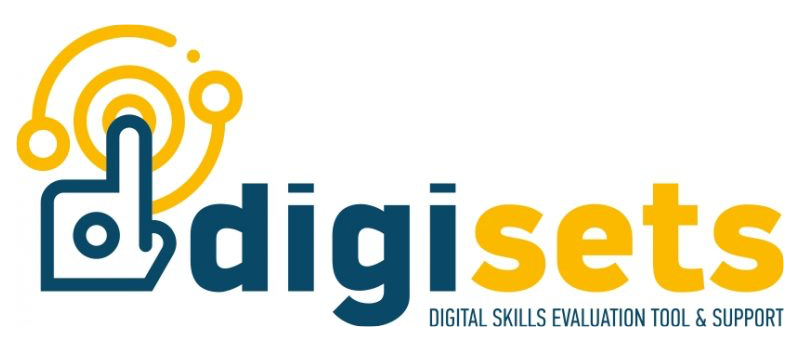The project funded under Erasmus+ KA2020 – Strategic Partnership for vocational education and training tackles a growing mismatch between existing digital skill levels and needed skill profiles, even in previously not highly digitalised work environments. We cooperate to reach the following objectives: First, to draw a map/framework of work-relevant digital skills. Second, to design an evaluation toolkit for organisations, it is multi-dimensional and gives a wider view of hard and soft digital skills. The results are used for education professionals working with (potential) employees in tourism and retail sector. The project is currently in implementation.
Digital skills and abilities to work in digital and networked environments are one of the key competencies of integration in the 21st century labour market. Challenges and changes related to “Work 4.0” have touched all sectors of the economy, even in services industries like tourism and retail. Employees with rather low-skill assignments need to have digital abilities and understanding in order to be able to work efficiently. In short, there is a trend in services towards digitization and the necessity to have multi-disciplinary digital qualifications.
The EU has recognized this trend, and has developed a “Digital Competence Framework” to map out different dimensions and levels of digital skills that are relevant for work and private life. In Austria, the Ministry for Digitalisation and Economy has adapted the framework in order to include more dimensions and aspects of digital literacy in everyday life, and the Public Employment Service has a working group on new skills that concludes a great and rising demand and skill needs in all economic sectors, including tourism and retail.
Therefore, the digital education becomes a central element in any discussion on the topic. The demand of digital skills has risen and many jobseekers lack the skills to make a transition towards a digital work environment. Furthermore, there is a lack of accessible/transparent tools for organisations and stakeholders to measure and improve existing digital skills.
The DIGISETS project tackles a growing mismatch between existing digital skill levels and needed skill profiles, even in previously not highly digitalised work environments. Experienced organisations and training providers from AT, BG, ES, EL cooperate to reach the following objectives: First, to draw a map/framework of work-relevant digital skills (previous research and data). Second, to design an evaluation toolkit for organisations. The tool is multi-dimensional and gives a wider view of hard and soft digital skills in an accessible form. Mainly the toolkit will be designed for education professionals working with (prospective) employees in tourism and retail sector. The toolkit is produced and programmed together in English, and then translated into the partner languages.
The project will also implement a workshop for trainers from participant organisations. The goal is to present outputs (framework, toolkit, guidebook) for practical testing, feedback and critical exchange on the importance of digital skill sets and how to improve them. It will also provide a forum for networking, matching, discussion and testing. Preparation is done by online questionnaires, and further discussion/feedback will take place at the event. This will include practical exercises, feedback and guidance to training offers. Furthermore, the project will organise multiplier events in all participating countries to present results and learnings to other stakeholders, in order to promote and disseminate knowledge.
Further information about digisets here.
Categories
DIGISETS – digital skills evaluation tool and support
The project funded under Erasmus+ KA2020 – Strategic Partnership for vocational education and training tackles a growing mismatch between existing digital skill levels and needed skill profiles, even in previously not highly digitalised work environments.

